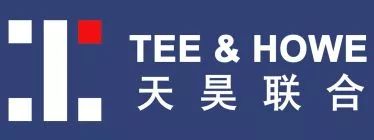On 24 September 2024 (the date when the IPO annual meeting 2024 ended, and I was on my flight from Chicago to Munich......), the CNIPA announced drafts for comments of patent and trademark agency engagement letters at the link below:
https://www.cnipa.gov.cn/art/2024/9/24/art_75_195107.html
The deadline to provide comments is 11 October 2024, which apparently is less than 30 days as proposed in the CNIPA's draft Provisions on the Procedure for Formulating Regulations announced on 11 July 2024 that the IPO provided comments on, notwithstanding that the current drafts are not "regulations". In any event, with such a short deadline, I am not sure whether the CNIPA is interested to receive comments, particularly with the Chinese National Day holidays from 1-7 October 2024 standing in between.
The above link provides the relevant Chinese documents, and I have their respective English translations. Although these documents are not compulsory are for reference only, I have several observations that are interesting (at least to me) as below.
The following are specifically indicated in the drafts, meaning that these or the opposite were found to have occurred and should be prevented (the article numbers below refer to those in the patent agency engagement letter, which similar recitations could be found in the trademark version unless otherwise specified):
- The client has the obligation to ensure that the applications involved are not "abnormal" (article 2.1). Otherwise, the attorney firm should notify the client of the relevant risk, and could terminate the representation (article 3.6).
- The client should provide sufficient materials and/or information (article 2.4).
- For design patents, electronically editable figures and/or phots should be provided[This is an interesting requirement, and may worth commenting on to provide flexibility], and the agency should be paid if asked to prepare the figures and/or photos (article 2.5).
- The attorney firm should be provided with reasonable time to do the work (articles 2.5 and 2.6).
- Communications in email or mail prevail, particularly over WeChat and QQ (another common instant messaging application in China, article 2.10).
- The client shall pay for service fees for handling annuities (article 2.13).
- The client shall pay in good time and fully (article 2.14).
- The attorney firm shall not outsource the work to a third party on its own initiative (article 3.13).
- Grant cannot be guaranteed (articles 7.1 and 7.2).
The following are points that may worth commenting on:
- XML is the preferred format of submission (article 3.14). I believe flexibility should be provided, while I understand the CNIPA's effort to promote XML submission. This is applicable to patent only.
- The clock of work starts after the attorney firm receives sufficient information or full payment from the client, whichever is later (article 5.2). While this is great for many Chinese firms working with local Chinese clients, the operability is low in this profession for the requirement of receiving full payment.
- Urgency fee can be charged for patents (article 6.3). While this is again great (we attorneys are not our clients' butlers, and please be reasonable), this strangely doesnotappear in the trademark agency engagement letter, which should be introduced in my view.
While the drafts appear to be relatively typical and normal, these reveal many things that should not have happened in China, like firms are not paid in good time and fully, not charging service fees for annuities, guaranteeing grant, and so on.
As always, any views are welcomed.
The content of this article is intended to provide a general guide to the subject matter. Specialist advice should be sought about your specific circumstances.


